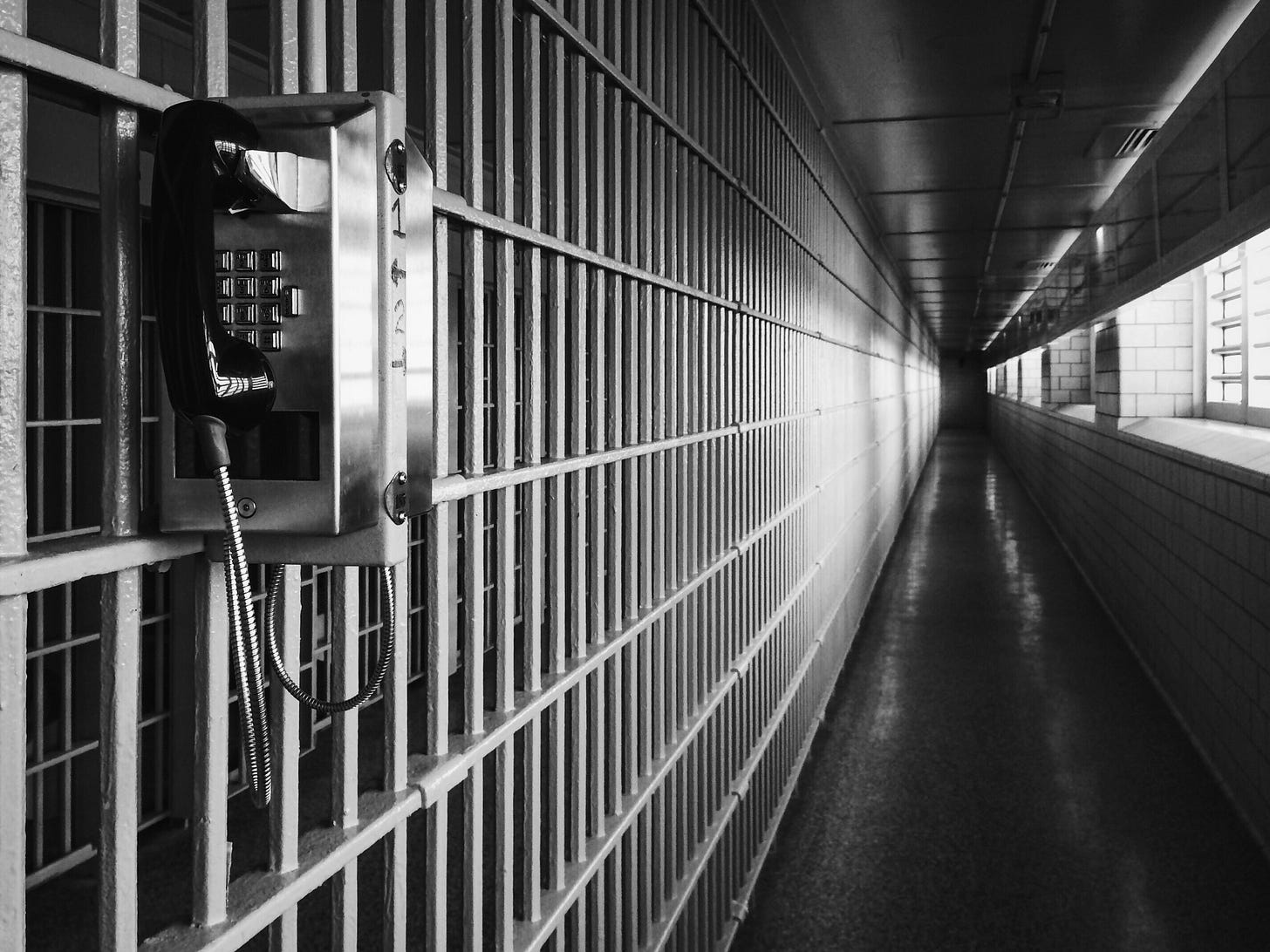‘Exorbitant’: The staggering cost of prison phone calls
It takes someone in prison nearly a whole day of work to pay for a short phone call with their loved one.
There are renewed calls in Australia to address the “exorbitant” cost of prison phone calls following a US state’s recent move to make all communications free for incarcerated people.
Phone calls from prisons in Australia are substantially more expensive than in the general community, with private companies typically being employed to provide this service.
The cost of these calls places a significant burden on people in prison and their friends and families, and can hinder rehabilitation.
In Victoria, it takes someone in prison at least one days’ work to earn enough money to afford just a 12 minute phone call.
Push to make calls free
Connecticut recently became the first state in the US to make all prison communications free after passing legislation facilitating this last year.
This has led to calls in Australia for states and territory governments to follow suit and reduce the “exorbitant” cost of phone calls from prisons or make them completely free.
“Considerable barriers exist to people in prison remaining connected with their families and support networks, despite the overwhelming evidence that damaging these relationships can lead to or entrench patterns of behaviour that are criminalised,” Human Rights Law Centre senior lawyer Monique Hurley says.
“A major barrier to people in prison remaining connected with family is the exorbitant cost of phone calls.”
In six years of her husband being in prison in New South Wales, Brenda* estimates that their phone calls cost at least $3000.
“The cost of calls is prohibitive,” Brenda says. “Calls to family should be free if Corrections are serious about rehabilitation and reducing recidivism.
“Families are struggling financially already with the loved one in prison, adding the expense of phone calls often causes families to go without something so they can still have that vital connection.
“Personally I’ve gone without preventative medication for asthma that’s $40 so I could receive calls, because the anguish of not speaking to my partner was not conducive to my mental health and wellbeing.”
In Victoria, a 12 minute phone call from a prison to a mobile phone number costs nearly $7. In these prisons, people are paid between $3.95 and $8.95 for a day’s work.
The cost of phone calls in prisons in the state is “staggeringly high”, Hurley says.
“To help people in prison keep connected with family and support networks, phone calls should be free in prisons across Australia,” she says.
‘Ridiculously high cost’
Prison phone systems are outsourced to private companies around the country as part of lucrative contracts, and phone calls from these facilities are far more expensive than in the general public.
Calls to home phone numbers are cheaper than mobiles, and services are available to divert a home phone to a mobile. Christine* uses such a service to contact her husband, who is incarcerated in a Queensland prison.
This service costs $20 per month to run, and phone calls are 40 cents per call to the home phone number. Christine’s husband is paid $7 per shift in the prison.
“For someone earning $7 a day this is used up pretty quick amongst other necessities he needs to buy,” Christine says. “So as a result I contribute at least $50 a fortnight to allow him to call with me no restrictions.
“He has had trouble maintaining contact with his adult children as they are unable to commit to the complicated phone set up and to call a mobile for 10 minutes from inside is something like $10.”
And overseas calls are even more expensive. Brenda says her husband rarely contacted his family overseas due to the costs.
“Due to the ridiculously high cost he rarely called family overseas,” she says. “His sister died during that time and he was unable to console his grieving relatives.”
Comsec TR provides a prisoner telephone system to Victorian prisons on a $26.3 million contract running until 2025. The company also provides its ACTS phone service to prisons in Queensland and Tasmania.
In Tasmania, Comsec recently landed a $3.3 million contract to make “significant upgrades” to the phone system.
In New South Wales, people in prison are provided access to the Offender Telephone System. Calls to numbers on the Common Auto Dial List, such as community legal services, are free, while unconvicted inmates are provided three personal local phone calls and convicted inmates are given one for free.
*Different names have been used



